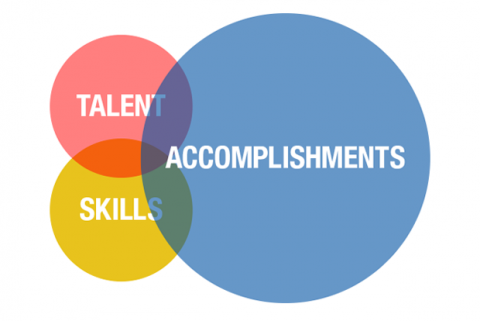"A primary task of leadership is to direct attention, but to do so, executives must learn to focus their own attention."
In the Harvard Business Review article "The Focused Leader," author Daniel Goleman, a co-director of the Consortium for Research on Emotional Intelligence in Organizations at Rutgers University, explains that leaders need to reflect on themselves and analyze how they focus their own attention, before aptly directing the attention of others. He groups these "modes" of self-reflection into three buckets.
Focusing on Yourself:
The two primary ways to do this is through self-awareness and self-control.
Self-awareness has to do with not only listening to your inner voice and paying attention to your gut, but also taking a critical look at the actions you take based on what that inner voice is telling you. Once you master consciously and consistently reacting positively to these feelings, you can move to the next "mode" — the one critical to being a good leader. You have to, "combine those experiences across time into a a coherent view of your authentic self." In the article, Goleman explains in more detail the benefits of being a leader who is in touch with their authentic self.
Self-control or "willpower" is the second way leaders can reflect on their actions to understand how they pursue goals despite set-backs. This allows "a single-minded pursuit of goals and also manages unruly emotions."
Focusing on Others:
Leaders who focus on others are easy to recognize, and most likely easy to work with. They have the "empathy triad." It includes "cognitive empathy: the ability to understand another person's perspective; emotional empathy: the ability to feel what someone else feels and empathetic concern: the ability to sense what another person needs from you." It also includes the ability to build relationships.
Focusing on the Wider World:
The executives who are not only good listeners, but are also good questioners can usually be considered visionaries who can sense "far-flung consequences," be they positive or negative. These folks focus on strategy, and are constantly asking, "what is your current advantage and how do you find new ones?" They are open to the creative challenge and "wellsprings of innovation," and open to wherever those ideas may reside with no qualms about hierarchy.
To find out more about how effective executives direct their own — and their organizations' attention, download the full article below.




